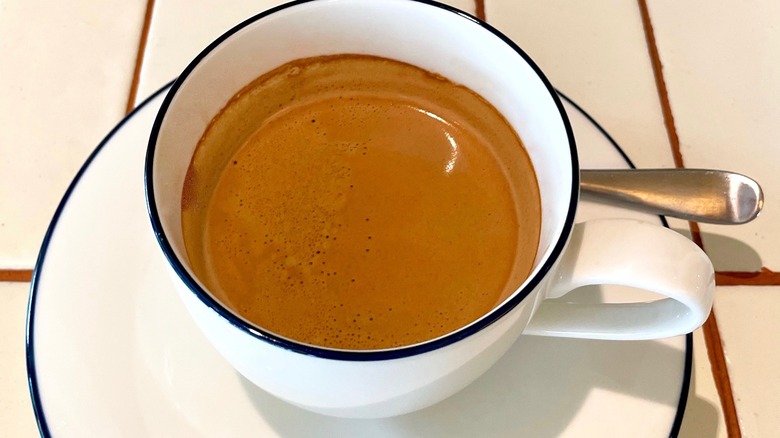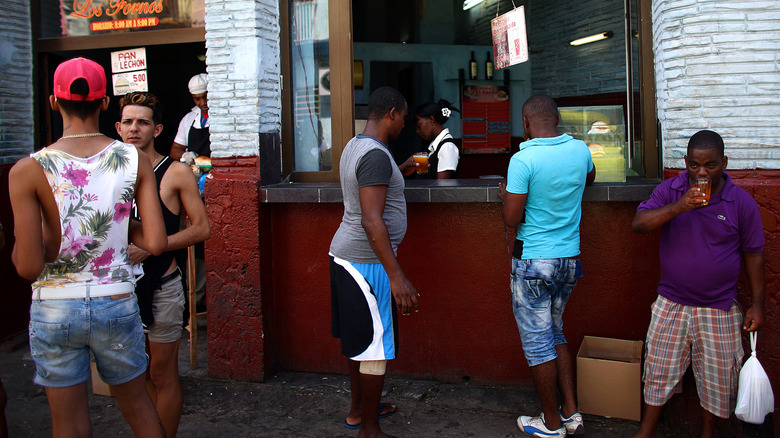The Only Difference Between A Cafecito And A Colada
Coffee is a universal, ever-changing experience that differs depending on where you are in the world. Per The Exotic Bean, coffee was discovered by a goatherd in Africa when he noticed his goats gravitating towards a specific bush. That bush was Coffea Arabica — the crop responsible for the coffee that 150 million Americans consume (via Deals on Health). Coffee isn't only a big deal in America, however; Europeans enjoy coffee in many different varieties, per The Exotic Bean. The French enjoy coffee with hot or steamed milk, Turkey and Greece like simmered water with their fine-ground coffee, and Italians have their signature espresso.
The history of coffee in Cuba began in the mid-1700s, according to Weaver's Coffee & Tea. By the 1820s, coffee beans were purchased more than sugar, and the numbers kept rising until coffee exports reached 20,000 tons in the mid-1900s. Like many other countries, Cuba has its own take on coffee that differs from what you may be used to. Two popular varieties are the cafecito and the colada, and the difference between the two is smaller than you think.
A social affair
One of the prominent coffee beverages in Cuba is called the cafecito. Per Weaver's Coffee & Tea, the cafecito is made during the brewing process, when a shot of espresso is mixed with demerara sugar to create a smooth taste and texture. Because the sugar is added while brewing, it drips to mix thoroughly with the espresso. The cafecito and colada only have one difference: the colada is larger so it can be shared with friends.
According to The Culture Trip, Cubans living in Miami think of coffee time as a way to catch up with friends and family. Miami's cafecito break typically occurs around 3 p.m. when consumers meet up in local Cuban coffee shops to sweeten up their day. "The magic of cafe cubano is that it opens the conversation," founder of Miami Culinary Tours Grace Della said. "If you're pouring a cafe cubano, you're inviting other folks to come and talk to you."
Whereas in America, coffee is typically taken to go, Cubans think of coffee as more of a social event, making it special all on its own.

